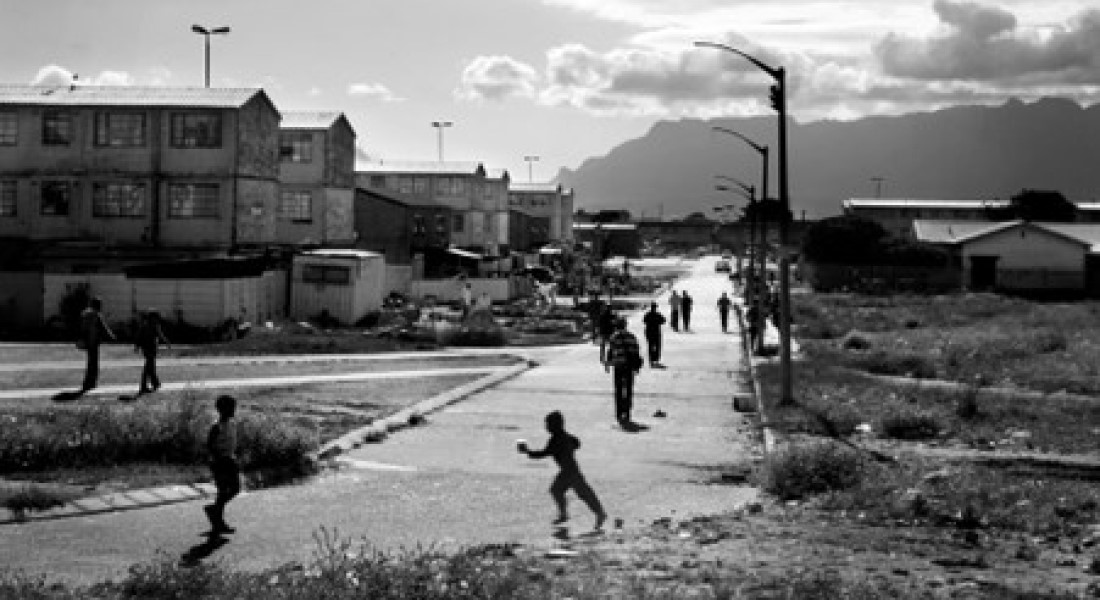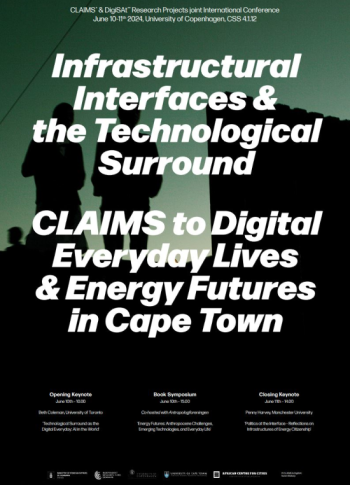CLAIMS to Energy Citizenship in South Africa
Energy access and affordability are major challenges across Africa. CLAIMS aims to confront this challenge, focusing on Cape Town as a case study to examine how energy – in particular electricity – is a key site of negotiating contemporary citizenship.

Climate change intersects with other development threats such as poverty and political exclusion. To avoid exacerbating existing inequalities in the transition to green energy, it is key to consider energy citizenship – and include restorative justice and belonging in it. There is a need for deeper socio-cultural understandings, likely to impact on the futures that forecasting modelling and scenario building seeks to predict, and for more qualitative research into the experiential dimensions of energy use in urban South Africa. The objective of CLAIMS is to understand, substantiate and contextualise ‘energy citizenship’. Concretely, the project sheds light on the interface between government and city policies and provision practices, and the ongoing claims, concerns, and actions of marginalised citizens and electricity users on the Cape Flats, a township area on the outskirts of Cape Town.
CLAIMS aims at providing solid, empirically based, knowledge on how energy and electricity is experienced and claimed by citizens on the margins and handled by the city.
The research team will trace the concrete technologies of 'the electricity socket' and 'the solar panel' and the infrastructures, politics, practices, and future possibilities they engender.
Through ethnographic fieldwork, archival work, interviews, co-creative mapping, collaborative filmmaking, and design workshops, the research team will provide insights into experiences of the planning of - and participation in - energy systems, sensitive to the innovative solutions of marginalised citizens and the municipality. The team will document the scenarios where provision works well, including the City’s experiments with Independent Power Production (IPPs), and citizens’ involvement in mini-grid projects.
In the upcoming years, the research will lead to local workshops bringing together city and regional government representatives, Cape Flats citizens and activists, researchers and other stakeholders to gather and map experiences and knowledge and co-generate solutions.
In addition to a series of academic articles, a dedicated website, film, and opinion pieces will also document and communicate the work.
2024
In June 2024 the CLAIMS team organized an international conference in Copenhagen titled 'Infrastructural Interfaces & the Technological Surround'. The conference was based upon research on infrastructures, technologies, digital everyday lives, and energy futures in Cape Town, South Africa (and beyond). Read the official conference program.

The project is a partnership between interdisciplinary teams of South African and Danish anthropologists, geographers, urban planners and historians.
In addition, two PhD students and a number of research assistants and undergraduates will be involved.
Researchers
| Name | Title | Phone | |
|---|---|---|---|
| Search in Name | Search in Title | Search in Phone | |
| Karen Waltorp | Associate Professor - Promotion Programme |
Funded by:

CLAIMS to Energy Citizenship in South Africa has received funding from DANIDA
Project: CLAIMS to Energy Citizenship in South Africa
Period: 2024-2028
Contact
Karen Waltorp (PI)
Associate Professor
Department of Anthropology
E-mail: karen.waltorp@anthro.ku.dk
---
Related projects
Karen Waltorp is PI on the DigiSAt project (2022-2024). Read more about the project on their website.
